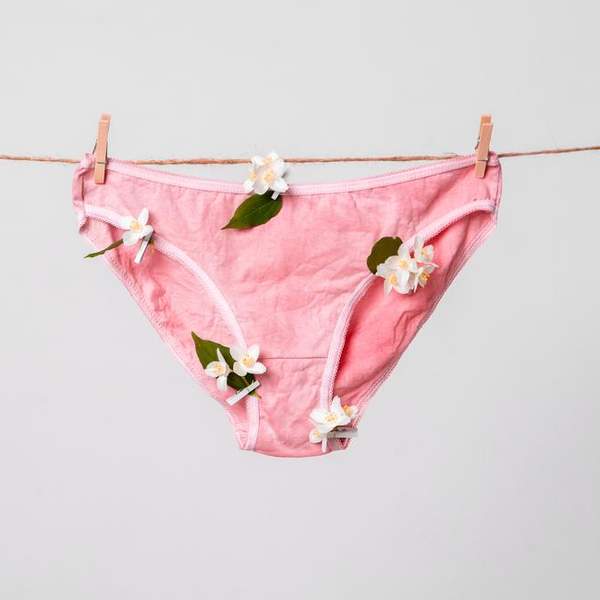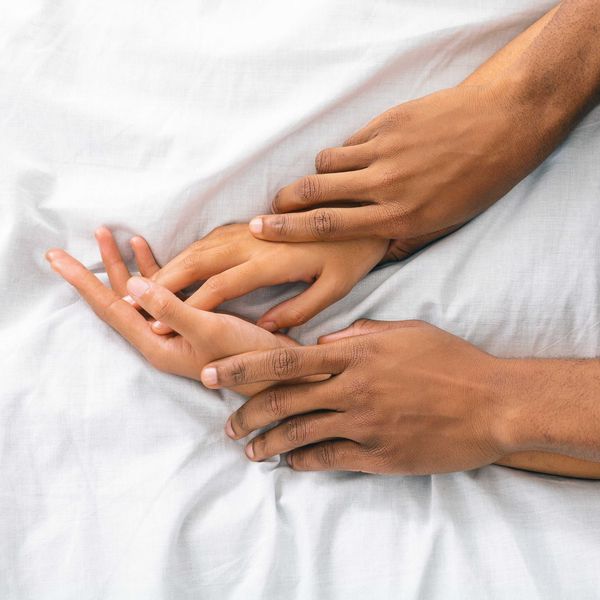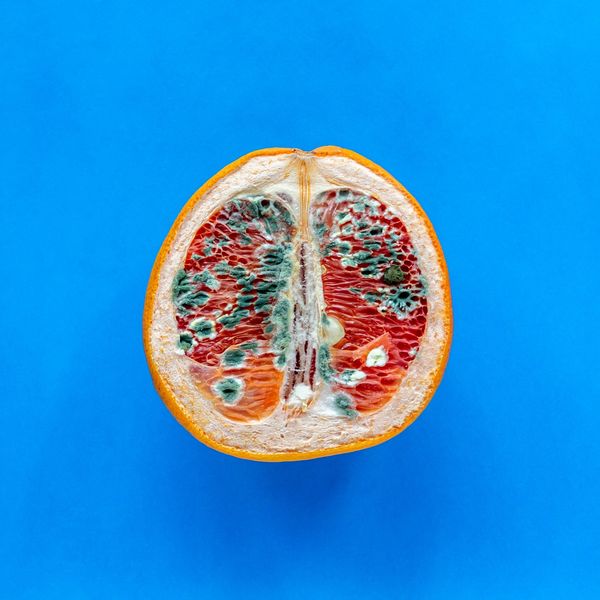Whew. It's already March and I'm assuming that a lot of you are asking the same question about 2021 that I am—where is the time going? Since the 20th of this month marks the official beginning of spring, I thought I would do a few articles surrounding spring cleaning. As you can tell by the title, this one is gonna be about spring cleaning your vagina.
I know. It might sound a little funny at first but trust me when I say that it's absolutely not clickbait. While I'm hoping that cleaning your vulva (you don't need to clean your actual vagina because it's self-cleaning) is a regular occurrence, what this is about to explore are ways that you can get to the baseboards of that area, so to speak. Like, you know how when you spring clean your house, you clean the baseboards? This is going to offer up 10 ways to give your vagina some extra special attention as you head into warmer weather and maybe even some "spring fever" opportunities. #wink
1. Up Your Vitamin C Intake
When it comes to what you can actually take in order to obtain vaginal health, probiotics are typically what come up the most often. They provide your body with more "good bacteria" so that the bad bacteria doesn't eventually lead to something like a yeast infection. Well, if there is a second place of things to consume to keep your vagina on the up and up, I think Vitamin C is the way to go. Not only is it loaded with antioxidants that can help to strengthen your immune system and keep free radicals at bay, Vitamin C has the ability to increase the acidity of your vagina so that harmful bacteria is not able to thrive. You can get this particular nutrient into your system by taking a supplement or you can eat foods like berries, peppers, broccoli, potatoes and citrus fruit to get a good dose of it into your system.
2. Take Some Chaste Tree Berry
If you've never heard of this particular herb before, don't feel bad. I do my best to share certain ones that don't come up in normal conversation because many have some really impressive health benefits. The awesome thing about Chaste Tree Berry is it can actually increase progesterone levels in your body. What's cool about that is the end result can lead to more regulated (and less heavy) periods, less PMS, a decrease in menopausal-related symptoms and, it can even help to increase your fertility levels (if you're trying to conceive) too.
That said, do keep in mind that herbs aren't candy. Some are quite potent. So, if this is something that you want to add to your regular diet, run it by your doctor first. Just make sure to avoid using chaste tree bark if you're pregnant. Also, it's important to keep in mind that it could take anywhere from 3-6 months before you start seeing some significant results.
3. Get Some New Cotton Undies
Tell the truth, shame the devil. When's the last time you bought some new underwear? If it was this time last year, that's close to being ridiculous because we're actually supposed to cop new pairs every 6-12 months. When you think about the discharge, period blood and even tiny bits of fecal matter that panties collect over time, you should want to get some fresh ones, anyway. As far as which ones, fabric-wise, are best for your vagina's overall health and well-being, breathable fabrics (like organic cotton) are the lick. As far as the kind/cut that you should go with, a lot of that is totally up to you. Just make sure to keep in mind that thongs can irritate your va-jay-jay and also trigger an infection over time and sometimes boy shorts are too much fabric. Bikini cut and hipsters are a happy medium. Please get the right size, though, because there is no point in having a breathable fabric if your panties are tight AF.
4. Balance Your pH Level
As far as spring cleaning goes, one of the best things that you can do for your vagina is make sure that its pH balance is right where it should be. For the record, a healthy vagina is supposed to be somewhat acidic and hovering somewhere around 3.8 and 4.5. The reason why it needs to be acidic is because that's what helps to keep the bacteria from turning into some sort of overgrowth. And what are the signs that your vagina is way more alkaline than it needs to be? If there's a dramatic change in color, texture or smell, those are dead giveaways.
One way to know for sure (if you don't have the money or time to see your doctor) is to take an at-home pH test. If it is a little "off", try taking a probiotic supplement, eating more fermented (like pickles and yogurt) and sulfur-based (like garlic and onions) foods, eat less sugar and lower your stress levels. If nothing improves in about a week, make an appointment to see your physician anyway. You may have some sort of infection that requires extra testing and/or a prescribed antibiotic.
5. Upgrade Your Sanitary Stuff
When it comes to my personal vaginal health and, what I call, "period convenience", something that has totally changed my life for the better is a menstrual cup. But if you would still prefer to go with tampons and/or pads, another vaginal spring cleaning tip that I would recommend is going with organic brands. Not only are they free of potentially irritating things like pesticides and dye that could lead to recurring yeast infections and BV or even certain diseases up the road, organic brands can actually help to lessen period cramps and prevent skin issues such as dermatitis.
If you need a little help in choosing which brands are best, Glowing Nest did a review on organic pads that you can check out by clicking here and Influenster did a review on organic tampons that you can check out here.
6. Clean Your Clitoral Hood
I've shared before that I once read about a woman whose clitoral hood was so swollen and irritated that her doctor ended up having to cut her hood off. Eww. The problem was there was so much hair, dried discharge, lint and overall gunk in there that the extra skin had to be removed in order to get it all out (whew). It got to that point because she didn't clean her clitoral hood.
I know it's not really something that we think about a lot but just to put everything into perspective—how would you feel if your man was uncircumcised and never cleaned his foreskin? A clitoris is a lot like a little penis in the sense that it's got a ton of nerve endings and it gets erect when it's aroused. And the hood of it? That is the foreskin. So yeah, once a month or so, dip a Q-tip in some olive, sweet almond or coconut oil, very gently push the hood back (as far as it will comfortably go) and rub the tip in order to dislodge what may be underneath. If your clitoris has been itching lately and you're pretty sure it's not an infection of some sort, it needing to be "spring cleaned" is probably the problem.
7. Schedule a Wax Appointment
It was literally this year that I started waxing. It started with my eyebrows because, for some reason, my threader seemed to be on a mission to thin mine out as much as possible. Yet as I became more comfortable with my totally bomb waxer, I decided that I was tired of literally bending over backwards to try and remove the stray hairs along parts of the inside of my butt (including what she calls the "coin purse" which is right where the crease of the butt begins). I had her do it instead. And man! It has been life-changing. It wasn't painful (just a little uncomfortable, but it's over really fast) and it lasts for weeks on end.
She's been trying to talk me into a Brazilian. I'm good on that. I like having grown woman hairs around my vagina. But what I will say is, as far as spring cleaning your vagina goes, if you want to tame some hairs or remove them altogether so that you can feel really clean and fresh down below, making a wax appointment is 1000 percent the way to go.
8. Condition Your Pubic Hair
Question. When's the last time you conditioned your pubic hair? I wouldn't be surprised in the least if it's something that you haven't exactly considered before but why wouldn't you do it every once in a while? Hair, anywhere, that is deeply moisturized can end up feeling smoother and being so much easier to manage. And in this case, if you happen to go with a conditioner that is high in vitamins A and E, it can help to unclog pores and prevent ingrown hairs.
The key is to make sure that you only apply the conditioner only where your pubic hair is and that you don't get any inside of your vagina (because that could irritate it). Let the conditioner sit for about 10 minutes and then rinse thoroughly. If you do this for about a week, you will notice a really big difference. (Feel free to add some Vitamin E oil at the end for some additional sheen.)
9. Sanitize Your Sex Toys
If you've got a stash of sex toys, now is a good a time as any to give them a really thorough cleaning. Make sure that you go with an antibacterial kind that is unscented because that will significantly decrease the chances of your clean toys irritating you once you're ready to use them again. If your toy happens to vibrate, wash it with a clean washcloth. If it doesn't, you can run it underneath some warm water and then clean it with the cloth. If your toys happen to be made out of glass, silicone or stainless-steel, you can actually boil them for 3-5 minutes in order to completely sterilize them. In any case, once you're done cleaning them, you can let them air dry.
10. Get Some “Naked in the Bed” Bedding
Definitely, one of the best things that you could ever do for your vagina is sleep in the buff. It's just one more way for your vagina to breathe since it's been cooped up in layers of clothing all day long. That said, one thing that a lot of people don't really think about is the kind of bedding that they should sleep naked in. Natural fibers are definitely the way to go. Organic cotton is great. So is bamboo. They are both breathable, soft and able to keep your body cool throughout the night. Hey, new sheets are supposed to be purchased every 2-3 years, so in the spirit of spring cleaning your vagina, why not get a couple of new sets this month? You'll adore it and your vagina will even more. Happy cleaning!
Are you a member of our insiders squad? Join us in the xoTribe Members Community today!
Featured image by Shutterstock
- How To Make Your Vagina Taste Sweeter - xoNecole: Women's ... ›
- Vagina Facts: Things You Didn't Know - xoNecole: Women's Interest ... ›
- What Is A Hydrogen Peroxide Douche? BV, Infections - xoNecole ... ›
- These Common Habits Are Actually BAD For Your Vagina - xoNecole ›
- Best DIY Feminine Wash, Vaginal Wash Recipes - xoNecole ... ›
- How To Care For Your Vagina AFTER Sex - xoNecole: Women's ›
- Are You Washing Your Vagina Correctly? You Sure? - xoNecole ... ›


























